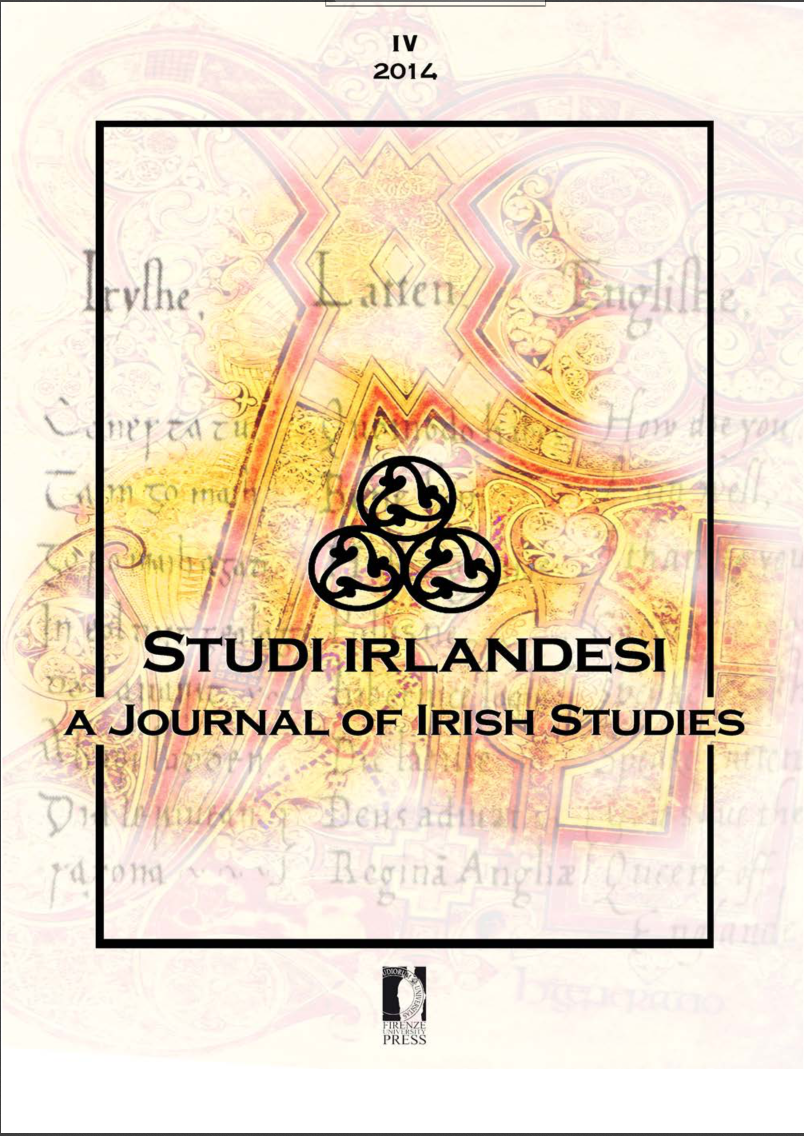Pubblicato 2014-06-30
Come citare
Abstract
The aim of this paper is to demonstrate how linguistic and translation issues have always been Friel’s main concerns. First of all, the language question in Ireland will be investigated in its multi-faceted implications. In particular, Tom Paulin’s A New Look at the Language Question (1985), one of the earliest pamphlets produced within the Field Day activities, will be analysed as it deals with some language topics which Friel dramatises in Translations (1980). At the time when Translations was performed, in fact, translation issues were still a pretext for the social and political reflection on the question of language. In Friel’s play, therefore, language has a twofold value. Language not only allows us to dwell poetically in our world and recollect our past, but it is also a utilitarian weapon to establish a one-to-one correlation between words and objects. Translations is thus based on the idea that translation is only a part of a more general theory of communication, as Steiner claims in After Babel: Aspects of Language and Translation (1975). The second aspect is that will be dealt with in this paper is that Friel uses translation as a powerful means of intercultural exchange in drama. In fact, Friel in his earliest Russian play, Three Sisters (1981), becomes a drama translator, according to Aaltonen’s main tenets. In discussing various translation strategies, Aaltonen shows how theatre productions in translation are always tied to the time and place of the receiving audience. Aaltonen’s conviction is that the translation of a foreign dramatic text, as well as its entire production, unavoidably represents a reaction to the Other when it is chosen for a performance in another culture. Therefore, Friel’s Three Sisters and the strategies adopted in its translation will be seen as an ‘Irish reaction’ to Chekhov’s Russia.


